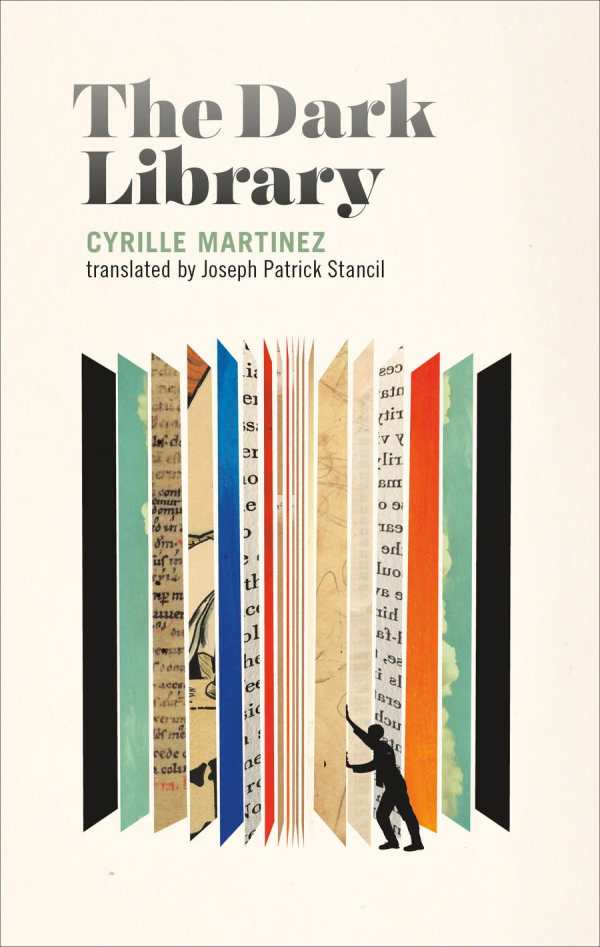The Dark Library
Cyrille Martinez’s clever and incisive novel The Dark Library creates a surreal microuniverse of books, manuscripts, readers, librarians, and historians.
In the Great Library, neglected works are becoming resentful and anguished. They demand to be noticed. Popular fiction enjoys its giddy rate of circulation, while scholarly tomes wait with smug assurance for their researchers. The stacks hum with the secret energy of millions of words and pages.
To outsiders, the Great Library may seem hushed and calm, but for the books, its “a jungle.” Centuries of literature and knowledge are housed here, circled by four imposing glass towers. Visitors and staff glide along on “thick, midnight-blue carpet,” all centered around an encased garden full of greenery and wildlife. Readers question the presence of birds in the library; the birds wonder why a library was built around their forest.
Following the library’s sleek redesign, books and longtime visitors sense menace in the modernization. An exhaustive scanning project shifts much of the collection from paper to the intangible dimension of digital media; quirky workers don robotic scanner eyeglasses; and devoted librarians express that they despise librarian stereotypes. The books protest as they struggle to survive, noting that they live with overpopulation, as well as fears of being warehoused or sent to the dreaded “pulper” for destruction.
But younger patrons have shorter attention spans; they prefer multitasking on laptops and smartphones to actual reading. Meanwhile, an elderly historian takes refuge among the books, but then begins showing up as a character within them. A veiled warning about the future role of libraries is issued, imparting a sense that the quest for modernization should never overwhelm the humanity of the present or the past.
With elegant undertones and wry humor, The Dark Library is a deft satirical novel that exemplifies deep compassion for books and readers.
Reviewed by
Meg Nola
Disclosure: This article is not an endorsement, but a review. The publisher of this book provided free copies of the book to have their book reviewed by a professional reviewer. No fee was paid by the publisher for this review. Foreword Reviews only recommends books that we love. Foreword Magazine, Inc. is disclosing this in accordance with the Federal Trade Commission’s 16 CFR, Part 255.

